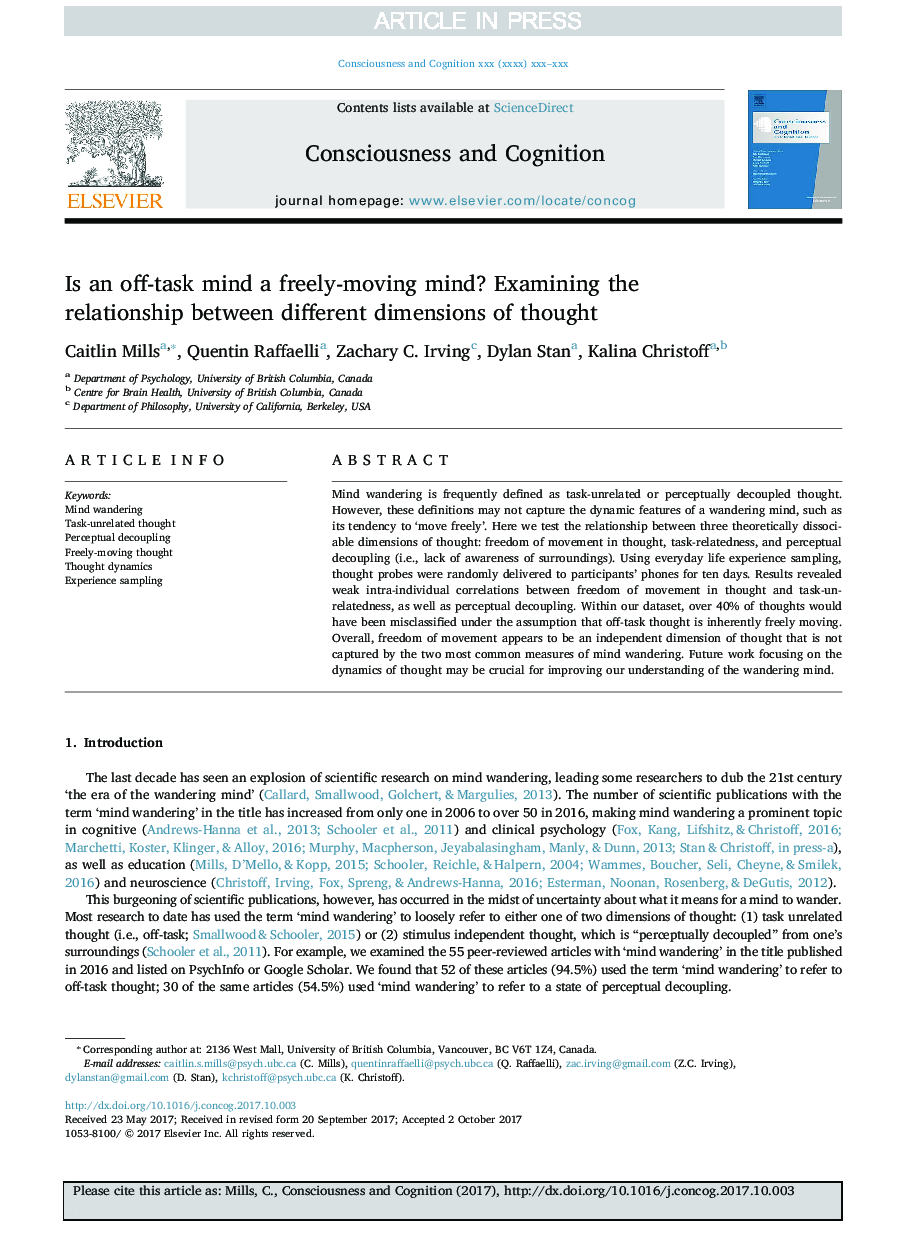| Article ID | Journal | Published Year | Pages | File Type |
|---|---|---|---|---|
| 7288091 | Consciousness and Cognition | 2018 | 14 Pages |
Abstract
Mind wandering is frequently defined as task-unrelated or perceptually decoupled thought. However, these definitions may not capture the dynamic features of a wandering mind, such as its tendency to 'move freely'. Here we test the relationship between three theoretically dissociable dimensions of thought: freedom of movement in thought, task-relatedness, and perceptual decoupling (i.e., lack of awareness of surroundings). Using everyday life experience sampling, thought probes were randomly delivered to participants' phones for ten days. Results revealed weak intra-individual correlations between freedom of movement in thought and task-unrelatedness, as well as perceptual decoupling. Within our dataset, over 40% of thoughts would have been misclassified under the assumption that off-task thought is inherently freely moving. Overall, freedom of movement appears to be an independent dimension of thought that is not captured by the two most common measures of mind wandering. Future work focusing on the dynamics of thought may be crucial for improving our understanding of the wandering mind.
Related Topics
Life Sciences
Neuroscience
Cognitive Neuroscience
Authors
Caitlin Mills, Quentin Raffaelli, Zachary C. Irving, Dylan Stan, Kalina Christoff,
